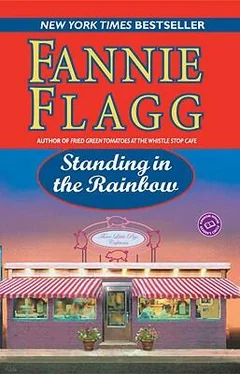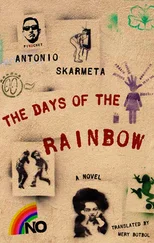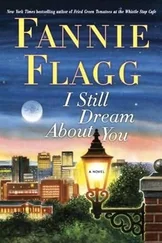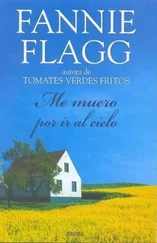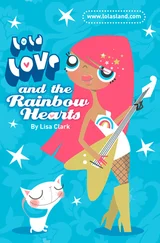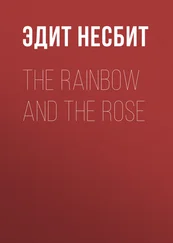Fannie Flagg - Standing in the Rainbow
Здесь есть возможность читать онлайн «Fannie Flagg - Standing in the Rainbow» весь текст электронной книги совершенно бесплатно (целиком полную версию без сокращений). В некоторых случаях можно слушать аудио, скачать через торрент в формате fb2 и присутствует краткое содержание. ISBN: , Жанр: Современная проза, на английском языке. Описание произведения, (предисловие) а так же отзывы посетителей доступны на портале библиотеки ЛибКат.
- Название:Standing in the Rainbow
- Автор:
- Жанр:
- Год:неизвестен
- ISBN:0-679-42615-9
- Рейтинг книги:3 / 5. Голосов: 1
-
Избранное:Добавить в избранное
- Отзывы:
-
Ваша оценка:
- 60
- 1
- 2
- 3
- 4
- 5
Standing in the Rainbow: краткое содержание, описание и аннотация
Предлагаем к чтению аннотацию, описание, краткое содержание или предисловие (зависит от того, что написал сам автор книги «Standing in the Rainbow»). Если вы не нашли необходимую информацию о книге — напишите в комментариях, мы постараемся отыскать её.
Standing in the Rainbow — читать онлайн бесплатно полную книгу (весь текст) целиком
Ниже представлен текст книги, разбитый по страницам. Система сохранения места последней прочитанной страницы, позволяет с удобством читать онлайн бесплатно книгу «Standing in the Rainbow», без необходимости каждый раз заново искать на чём Вы остановились. Поставьте закладку, и сможете в любой момент перейти на страницу, на которой закончили чтение.
Интервал:
Закладка:
Betty Raye, a pale thin girl with light brown hair and brown eyes, wearing a lavender dress exactly like her mother's, came over somewhat reluctantly. Dorothy smiled at her. "Hello, Betty Raye. We're looking forward to having you with us. We have a daughter about your age and I know she's going to be very happy you are coming."
Minnie nudged Betty Raye. "Tell the lady thank you." The girl blushed and said something but she spoke so softly Dorothy could not hear what she said.
Later, after Dorothy returned to the table and realized what she had just done, she said to Doc, "Anna Lee is going to kill me."
Dinner on the Ground
The Oatman family was just one of the many white gospel groups traveling all over the South and Midwest that year. Groups like the Spear Family, the Happy Goodman Family, the Statesmen, the Harmony Boys, the Weatherfords, the LeFevres, the Dixie Four, the Tennessee Valley Boys, and the Melody Masters made their living by traveling and appearing at small churches, singing conventions, revivals, all-day sings, and dinner-on-the-ground events. The roots of what was now called southern gospel music had actually started in New England in the 1700s, when early colonists brought hymn books from the Old World.
Gospel was the dominant musical style in America for a long time and was very popular at churches and camp meetings all over the country.
However, after the Civil War the style of singing known as Sacred Harp or shape note music lost its popularity in the North but was kept alive in the rural churches of the Deep South. In 1910 a man named James D. Vaughan published his first songbook, Gospel Chimes. To promote it he sent out the Vaughan Quartet, the first all-male southern gospel group in America. Eventually, he started the Vaughan School of Music in Lawrenceburg, Tennessee. Soon other schools opened, and by the 1930s southern gospel groups featuring men and women and children were springing up everywhere and crisscrossing the South, Midwest, and as far north as Iowa. The more successful gospel groups began to appear and thereby advertise over the radio and were able to promote a good crowd at their appearances.
But in 1946 radio appearances were a fairly new thing for the Oatmans. Ferris and his brothers, Floyd and Le Roy, had all been raised on a hard scrabble dirt farm in northern Alabama by strict Pentecostal parents. Because of his upbringing Ferris believed that just listening to the radio, much less singing and preaching over it, was a sin. As Minnie put it, "Ferris is bad to think the devil is behind everything."
However, in 1945, after seeing how the other groups were attracting so many people to their appearances by using broadcasts to tell people where they would "be at," he prayed about it. A week later he said, "Minnie, the Lord spoke to me and said he wants us to go on the radio," and so it was settled.
Minnie Varner, the fourth child of an Assembly of God preacher, was born outside of Shiloh, Georgia. The Varners were a musical family and Minnie was playing piano in church by age nine. She met Ferris Oatman when she was twelve and he was twenty-four. She had been at an all-day sing and dinner on the ground playing for the Harmonettes, an all-girl gospel group from Birmingham. That day Minnie saw Ferris, with all that black curly hair, she fell in love. Ferris must have felt the same. That night he told his brother Le Roy, "I just met my wife today." Two years later, when she was fourteen, she ran off with him, ignoring the warnings of her parents and older brothers about marrying into a traveling gospel group. They said if she did she would be living in the back of a car hawking song books out of the trunk all her life. So far they had been right. But Ferris Oatman, who had worked picking cotton to send himself through the Stamps-Baxter School of Gospel Music in Dallas, felt he had a real calling. From the age of six all he ever wanted to be in life was a gospel quartet man. All Minnie wanted from age twelve was to be his wife and so she joined the group and went on the road.
After the two boys, Bervin and Vernon, and later Betty Raye were born, Minnie's parents bought them a small, two-bedroom house a few miles from where she was raised. They wanted the children to have a home base but they were hardly there long enough to do anything but wash and iron all their clothes and take off again. It was a hard life. During the Depression they lost Ferris's brother, Le Roy, their bass singer, who ran off to join a hillbilly band. Aside from the few dollars they made selling song books they performed for free-will offerings, which could range anywhere from five dollars to ten dollars a night, depending on the size of the congregation. Money was scarce. Minnie said the only consolations were knowing they were doing the Lord's work, and the food. Most of the churches were in the country and there was always plenty to eat. In the homes where they stayed and at the numerous dinner-on-the ground all-day singing events, even during the Depression, they were well fed. Fried chicken, ham, pork chops, fried catfish, fresh vegetables, sweet potatoes, mashed potatoes, biscuits and gravy, cornbread, fresh buttermilk, honey, jellies and jam, homemade bread, cakes, pies, and cobblers. They ate so much rich food it began to look like a lot of the gospel singers had been picked out by the pound. One man in Louisiana who had been an eyewitness to a car wreck outside of Shreveport involving a well-known gospel group remarked, "Why, they must have pulled out two thousand pounds of gospel singers in that one car alone. Of course the advantage of all that padding was that not one of them had been hurt." The disadvantage was, as Minnie put it, "Gospel singing is good for the soul but bad on the gallbladder."
In the Oatman family only Betty Raye was thin and they couldn't understand it. But there were many things about Betty Raye they did not understand.
Home Again
Dorothy and Doc got back from the convention late Sunday night and Monday at 9:30 she was back on the air as usual. She opened the show with a "Good morning, everybody, I hope it's a beautiful day where you are but I'm mad at the weather over he reit an old gray drizzly day.
But rain or shine I am glad to be home again and especially to be back with all my radio friends. Our trip to Memphis was wonderful and we saw quite a few sights. Not only was there a family of ducks living in our hotel lobby, right across the street there was a hot dog stand that was open twenty-four hours a day. I said to Doc I couldn't imagine anyone wanting a hot dog in the middle of the night but I guess they do. Anyhow, Memphis is lovely but…" Mother Smith played a few bars of "There's No Place Like Home" and Dorothy laughed. "That's right, Mother Smith, and by the way, we are so glad to have Mother Smith back with us this morning and she reports that her sister Helen is doing well and is on the mend, as we say… and we send out our special good wishes to her this morning and to all our precious little shut-ins everywhere.
And speaking of special, I have an exciting announcement for all of you gospel fans coming up later, but first… "Let me ask you this: can you make biscuits that make your family say 'yummy'? If not, I want you to get yourself a bag of Golden Flake Lite-as-a-Feather Flour, guaranteed to make your entire family say 'yummy'. And before I read the winning letter of our How I Met My Husband Contest, I need to say a great big hello and thank-you to our radio homemaker friend Evelyn Birkby, whose show Down a Country Lane is heard on KMA all the way up in Shenandoah, Iowa, for the sour cream raisin pie recipe she has sent along. And let's see what else do I have… Oh, Fred Morgan called and says he just got in a new shipment of brand-new Philco console radios, so come on down. I hate to say it, but I'm so old I can remember homemade radios, crystal sets made out of oatmeal containers and an old cigar box. What? Mother Smith says she remembers when we didn't have radio at all. Well, I'm glad we are living now instead of then because I love visiting with all my radio neighbors by way of the airwaves but how it works don't ask me. With so many of us on the air at the same time, why radio shows don't crash into one another up in the sky is still a mystery. I often wonder if a show disappears into thin air after it is heard or if it just keeps on floating around up there, but if you know don't tell them sure it would just scare me to death. "Beatrice is here and has a song for all my Kentucky listeners, "Starlight on the Blue Grass," but first to our contest winner. Mrs. Boots Carroll of Enid, Oklahoma, writes,
Читать дальшеИнтервал:
Закладка:
Похожие книги на «Standing in the Rainbow»
Представляем Вашему вниманию похожие книги на «Standing in the Rainbow» списком для выбора. Мы отобрали схожую по названию и смыслу литературу в надежде предоставить читателям больше вариантов отыскать новые, интересные, ещё непрочитанные произведения.
Обсуждение, отзывы о книге «Standing in the Rainbow» и просто собственные мнения читателей. Оставьте ваши комментарии, напишите, что Вы думаете о произведении, его смысле или главных героях. Укажите что конкретно понравилось, а что нет, и почему Вы так считаете.
